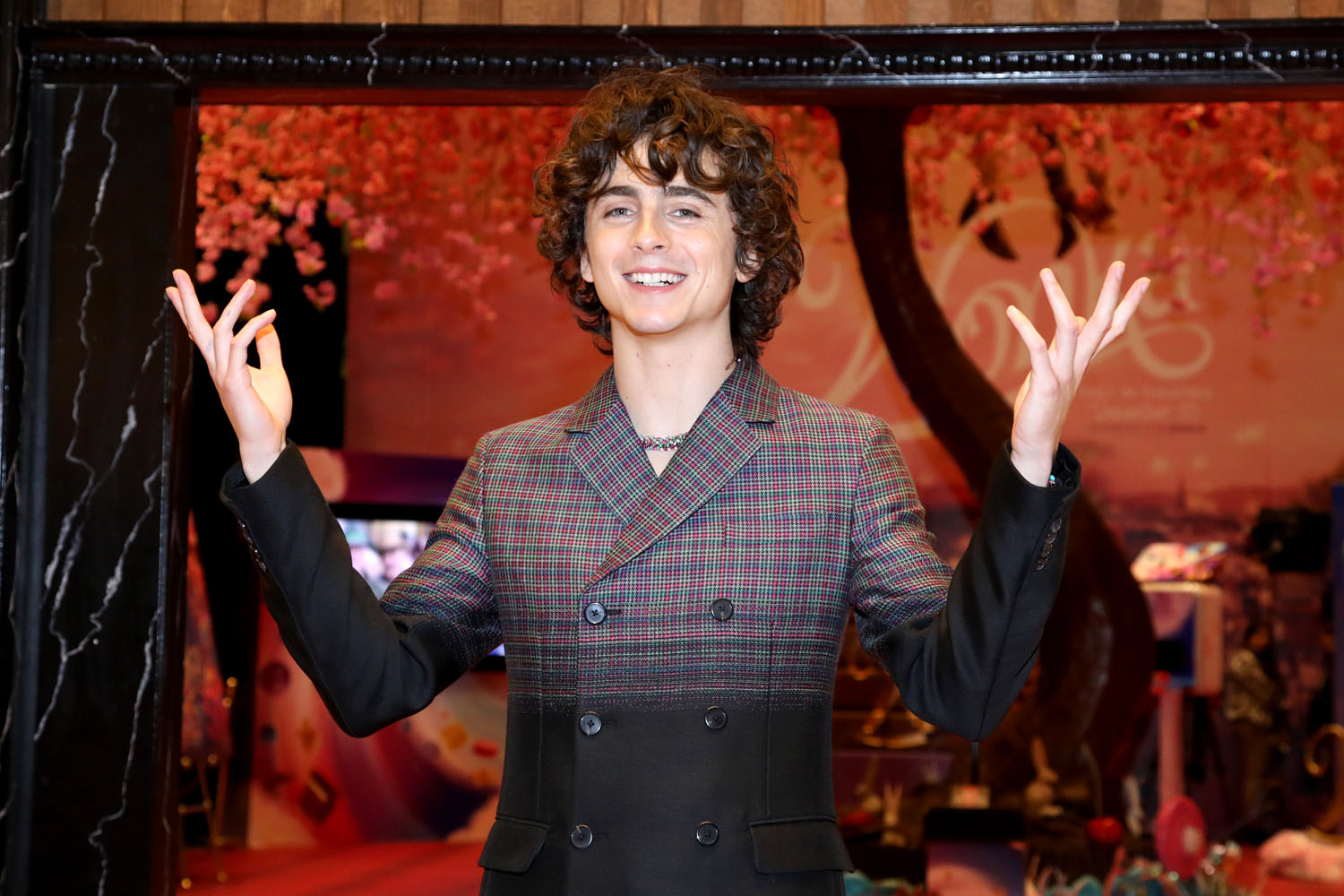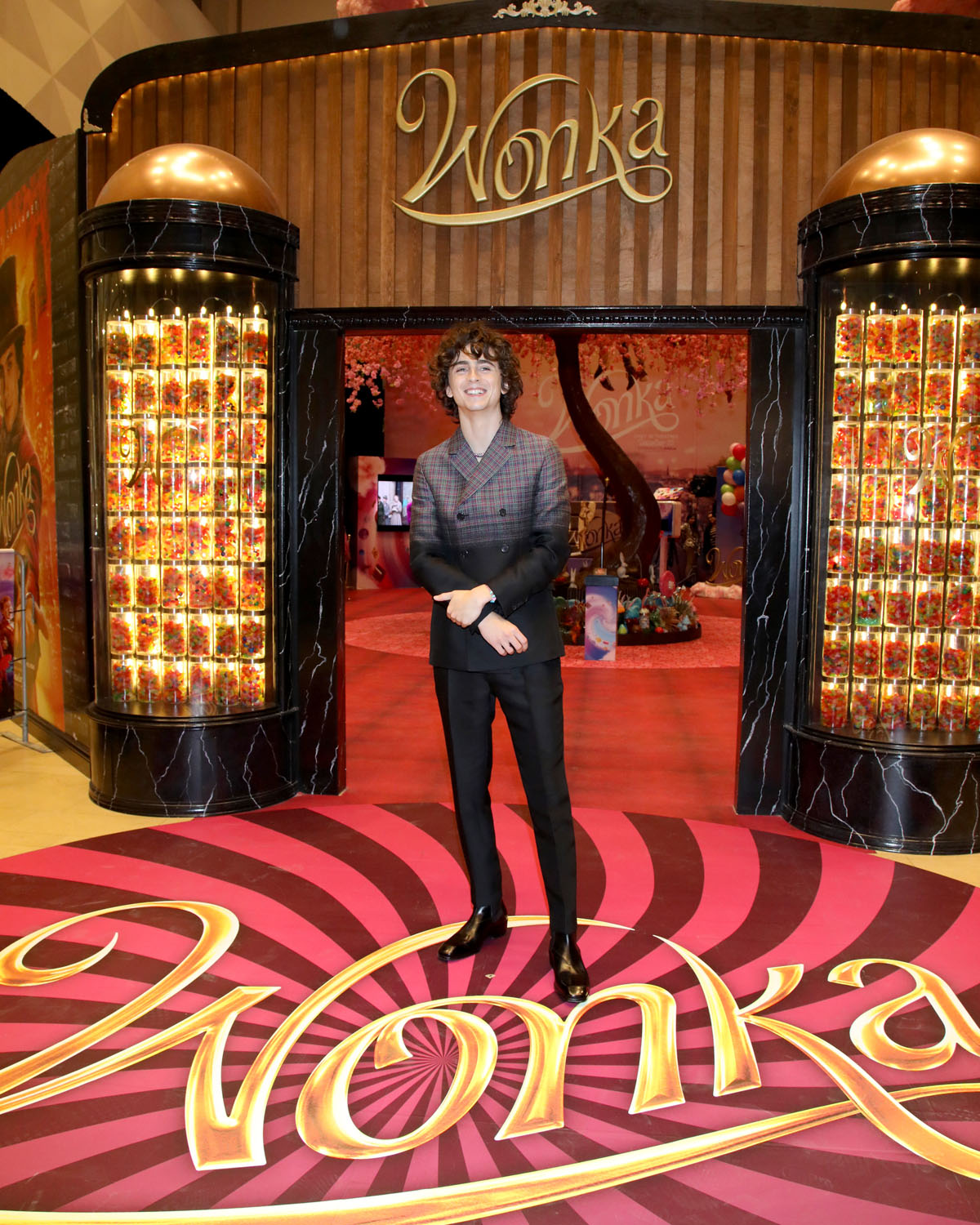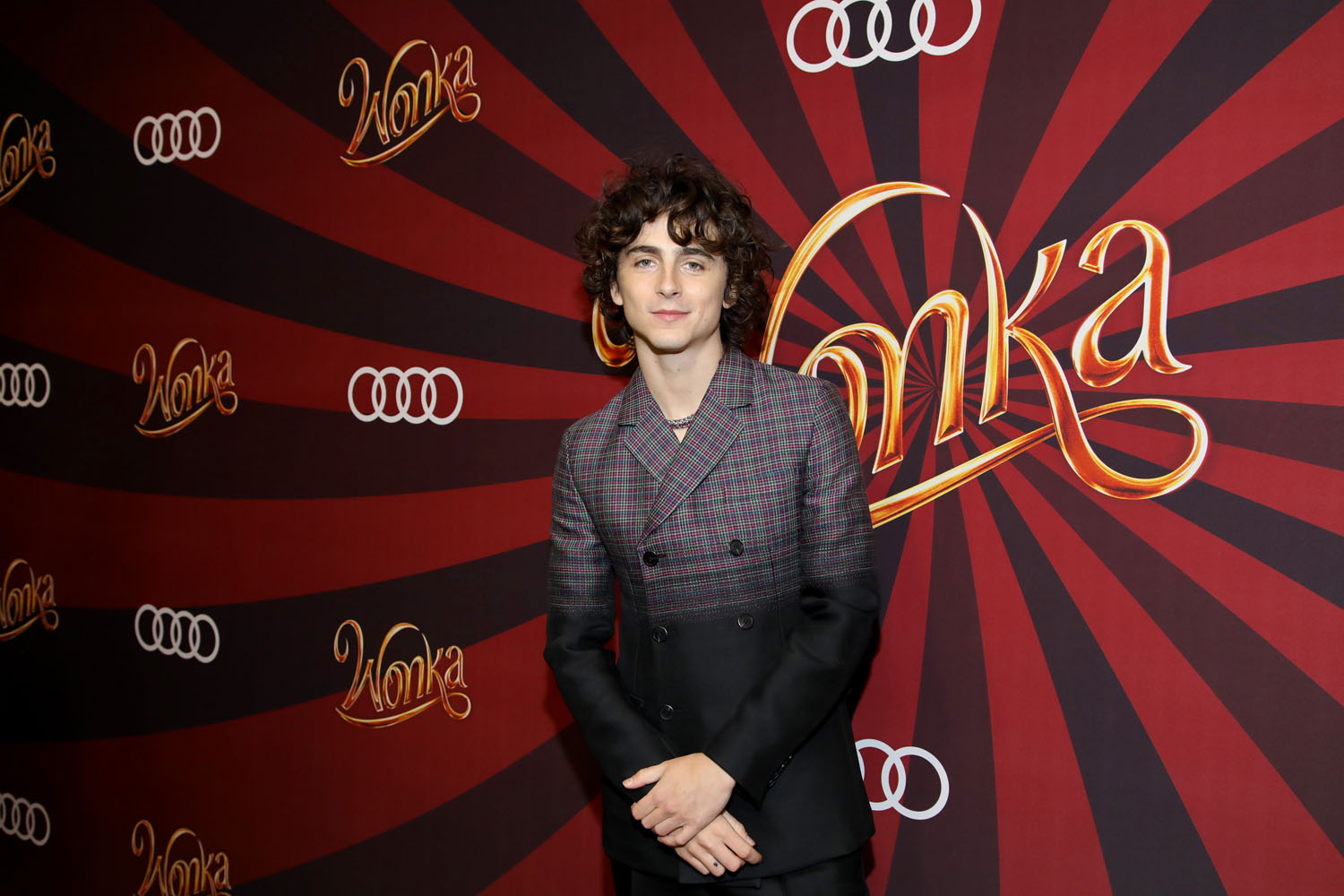Timothee Chalamet in Wonka



On the scale of “Cats” and “Not Cats”, Wonka is “Not Cats”. It’s actually…kind of good? Starring Timothee Chalamet as a young, literally fresh-off-the boat Willy Wonka, and directed by Paul King and co-written by King and Simon Farnaby—the team behind Paddington 2—Wonka is a musical prequel to Roald Dahl’s classic children’s story, Charlie and the Chocolate Factory, which means by default, it is also a prequel to Willy Wonka & the Chocolate Factory, the 1971 film starring Gene Wilder. As part of Dahl’s legacy, and by extension Wilder’s, Wonka doesn’t really work. The dark undertones of Dahl’s work are glossed over, and Chalamet’s performance in no way suggests this young man grows up to be the sort of bitter, possibly murderous madcap candymaker played by Wilder. But unto itself, Wonka is mostly enjoyable. If, you know, you go for musicals.
The whole thing DOES feel factory designed to be adapted into a Broadway show, with a stage-ready setting and chorus-friendly choreography. The original songs (by Neil Hannon and Joby Talbot) are catchy if not entirely memorable—the standout for this musical curmudgeon is the work theme “Scrub Scrub”—and it does take a little shine off to so obviously feel the wheels of commerce turning in the machinery of the film. There are moments when the film feels like a pit stop on the way to Broadway and the West End, and it loses a little charm.
But on the whole, while not as wholesomely magical as Paddington and especially Paddington 2, Wonka gets the job done. Chalamet’s take on the character is as a spindly-legged naif intent on making the best chocolate in the world in the hopes of seeing his dead mother, played in flashback by Sally Hawkins, who once promised to be with him when he finally shared his confections with the world. This Willy Wonka is a young dreamer who is part magician, part inventor, part chocolatier, with shades of a potential conman lying within. The world conspires against Willy, though, as a cabal of corrupt chocolatiers conspire to keep him out of the confectionary business.
The best joke in Wonka is about all the serious crime the police aren’t solving while they harass Willy out of business, but the setup of the evil chocolatiers, headed by Mr. Slugworth (played with delicious glee by Paterson Joseph), bribing the police and the church to do their bidding is a sly nod to the way actual corruption works in the real world. It’s the closest Wonka comes to Roald Dahl’s inherent darkness, as all other rough edges have been smoothed away in the name of mass market appeal. Casting Keegan-Michael Key as the compromised chief of police and Rowan Atkinson as the crooked priest also helps whittle down the edges, as they play to broad, slapstick laughs.
Wonka pushes on, though, as Willy befriends the permanent, unwilling residents of a shady laundry business run by the foul Mrs. Scrubbitt (Olivia Colman, hugely enjoying herself) and her accomplice, Bleacher (Tom Davis). She tricks Willy into signing a damning contract—the origin of the infamous “the small print”—which basically results in his indentured servitude to her laundry business. But with the help of an enterprising orphan, Noodle (Calah Lane), and the other victims of Scrubbitt and Bleacher’s scheme, including Jim Carter as a beleaguered accountant and Natasha Rothwell as a singing plumber, Willy continues to pursue his dream of candy-coated greatness, even as he is stalked by a “little orange man”, an Oompa-Loompa played by Hugh Grant. He is less invested here than he was as the dastardly Phoenix Buchanan in Paddington 2, but he lands his jokes well enough.
Though it has the trappings of whimsy, chiefly in production design, Wonka is less Paddington and more Cruella. Like that film, the protagonist is known to be a not-so-nice individual, but the prequel leaves Willy in a place from which it is virtually impossible to imagine Chalamet’s Willy growing into Wilder’s Wonka. Willy is just an entirely different creation, and Wonka deliberately misses opportunities to cast this world in a darker light that might illuminate how such a hopeful spirit ends up booby-trapping kids as punishment in his demented candy factory decades down the line. It’s best to just take Wonka as its own thing, and not expect it to line up either with Dahl’s novel or the film.
And as its own thing, Wonka works quite well. I’d rather re-watch Paddington 2 if I’m looking for Paul King’s brand of whimsical magic, but if you’re into musicals and/or Timothee Chalamet, Wonka serves just enough of its own brand of singing, dancing, chocolate-coated sweetness to effectively tell its story of a mildly eccentric candymaker with mommy issues taking on the corrupt bureaucracy of a city that runs on a candy economy. Certainly, there is a funnier, weirder, Wonka-ier film in here, but Wonka isn’t aiming for any of that. It’s just trying to be a good-hearted musical about friendship and chocolate, and in that, it succeeds.
Attached - More photos of Timmy at the Wonka event in Toronto.
Wonka is now playing exclusively in theaters.






